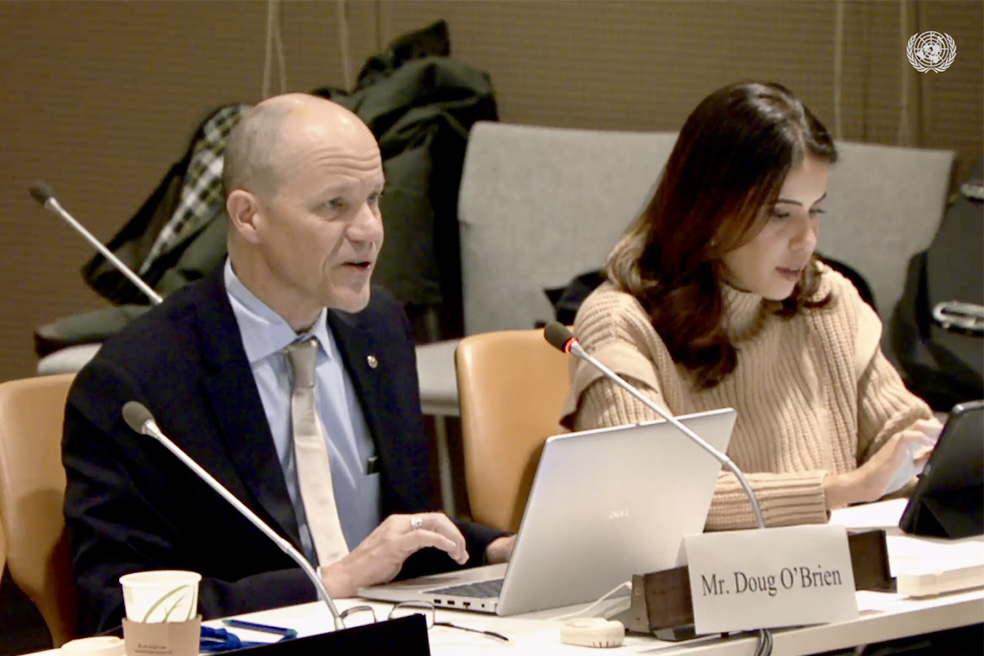
This week, we’re amplifying the third newsletter in a series published by Mike Mercer, former President and CEO of Georgia Credit Union Affiliates and a 2020 inductee to the Cooperative Hall of Fame. In this issue of the Principle 6 Newsletter, republished with permission below, Mike reflects on the evolution of the cooperative DNA with the credit union sector.
Read the full issue of Principle 6 Newsletter below. And while you’re thinking about “cooperation among cooperatives,” take a moment to consider how you and your cooperative practice this principle. NCBA CLUSA is on a mission to document Principle 6 collaborations across the country so we can identify trends, document best practices and share this knowledge with you—our fellow cooperators!
SHARE YOUR EXAMPLE OF PRINCIPLE 6
Principle 6 Newsletter – The CU Cooperative Journey
Issue 3- August 12, 2020
The Liturgy…

Rochdale Co-op Principles:
- Membership is Open and Voluntary (and non-discriminatory)
- Democratic Organization, Member Control (leaders accountable to membership)
- Members Participate Economically (equitable control of capital)
- Autonomous, Independent (built upon self-help)
- Provide Education, Training and Information (including benefits of cooperation)
- Cooperation with other Co-ops (through organized structures)
- Contribute to the Success of Community
- (Express) Commitment to Diversity, Equity & Inclusion… under consideration
Cooperative Principles:
- Self-Help (members take initiative for self-improvement)
- Self-Responsibility (fulfill personal commitments and engage with the cooperative)
- Democracy (members control the co-op, with equal voice)
- Equality (equal benefit, relative to usage/contribution)
- Equity (all members treated justly/fairly)
- Solidarity (members support each other…across all cooperatives)
Ethical Values:
- Honesty
- Openness
- Social Responsibility
- Caring for Others
Credit Union Motto:
- People Helping People
After Church…
In ancient Greece, the word liturgy referred to a ‘public office or duty performed voluntarily by a rich Athenian.’ We know the word in its contemporary definition, ‘a form or formulary according to which public religious worship is conducted.’ Beyond ‘People Helping People’, most credit union leaders don’t have the time (or inclination) to bother much with the written Word or to cloak themselves in the vestments of liturgical duty. There are tactical plans to execute, staff to motivate, KPIs to monitor, examiners to make comfortable, technology investments to make, and so on. Who has time to muse about Solidarity?
Notwithstanding, most credit unions have sent some of their key people to philosophic retreats like the Foundation’s highly regarded Development Education (DE) Program. The brochure reads, ‘transformative, experiential training established to connect people with the value proposition of credit unions using empathy and purpose.’ WOCCU has the Young Professionals, Filene has the Cooperative Trust…there are others. No doubt there is cooperative liturgical review in all of these good programs. And, upon graduation or completion, participants are encouraged to ‘go forth and spread the good Word’.
Credit unions are endowed with exceptional cooperative history. The stories of self-help and selfless helping are woven into the fabric of credit union legend. The labyrinth of support organizations provides constant streaming of cooperative identity reminders through writings, conferences, schools and training programs. Outside publics (lawmakers and media representatives among them) are showered with evidence that credit unions are doing good things for people. The Cooperative DNA doesn’t get much better than that!
But DNA mutates…
Some are worried that the 2nd principle has been weakened to an alarming degree. In the words of a commenter from the last Letter:
I feel the issue of the viability of the cooperative model needs to begin with a deep exploration of one of the seven cooperative principles: “Member democratic control”. In my experience observing hundreds of CUs across the country, very few credit unions in the U.S. embrace this principle…
In more than a few credit unions, it would be hard to argue with the assertion that control is highly concentrated in the hands of the board and senior management. Contested elections are becoming rare and staff often has to be rounded up to make a quorum at the annual meeting. Tight control is certainly efficient. And, it doesn’t necessarily preclude exercise of the other cooperative principles/values…but that would depend on the inclinations and motivations of that handful of officers.
Principle #5 (P5) talks about education and information as a core co-op responsibility. In addition to providing members with reliable and trustable information, it speaks to education about the benefits (and responsibilities) of cooperation. When the sign reads ‘Acme Financial’ with no mention of ‘Credit Union’, it suggests conscious suppression of cooperative identity. When the radio commercial describes a ‘better bank’, it’s hard to lift ‘credit union difference’ from that. Much has been said about the negative resonance of the words ‘credit’ and ‘union’. But, apparently nobody has mentioned that problem to consumer advocates…who constantly recommend switching to a ‘credit union’ when people call with complaints about their bank.
One more example (for now) is P6. ‘Cooperatives Cooperate’. There may be an emerging sub-principle in the credit union world. Call it P6 (b). ‘Credit Unions Cooperate…and Compete’. Co-opetition becomes virtue. Don’t be smug…Leagues and CUNA have a P6 (b) too. Cooperate on letters to Congress and DEI proclamations, but compete for attention (and business) from CU leaders apart from legislative & regulatory affairs.
I know…what about P4‘Autonomous and Independent’ ?
Some read P4 literally to mean license for independent, my-domain decision-making. Reminds me of how we read the Holy Books…some take scripture literally (occasionally to justify crusades, inquisitions, infatada and the like) while others regard the ‘Word’ as language crafted a time long ago, sifting out the intended spirituality. In credit unions, there is a philosophic distinction between viewing opportunity as territory to be individually conquered…or souls to be liberated (from banks) by working together as a system. One strives for independent identity, the other advocates for stronger category branding.
Of course, what matters is not so much from whence we came, but how credit union cooperative DNA will evolve from here. Will a global cooperative ‘source code’ survive, or will the DNA mutate based on the inclinations and convictions of the officers at each credit union?
How will you…how should we…frame thinking around the evolution of cooperative DNA in the credit union sector?
Stay tuned,
Mike


